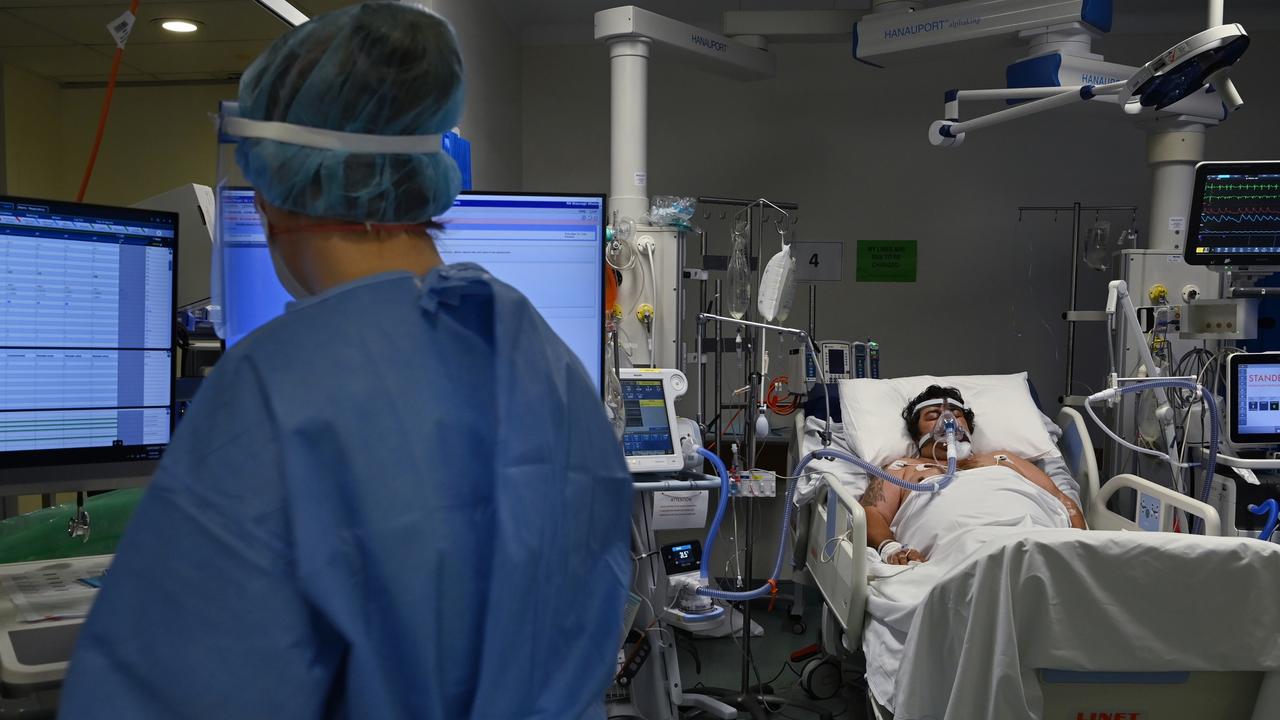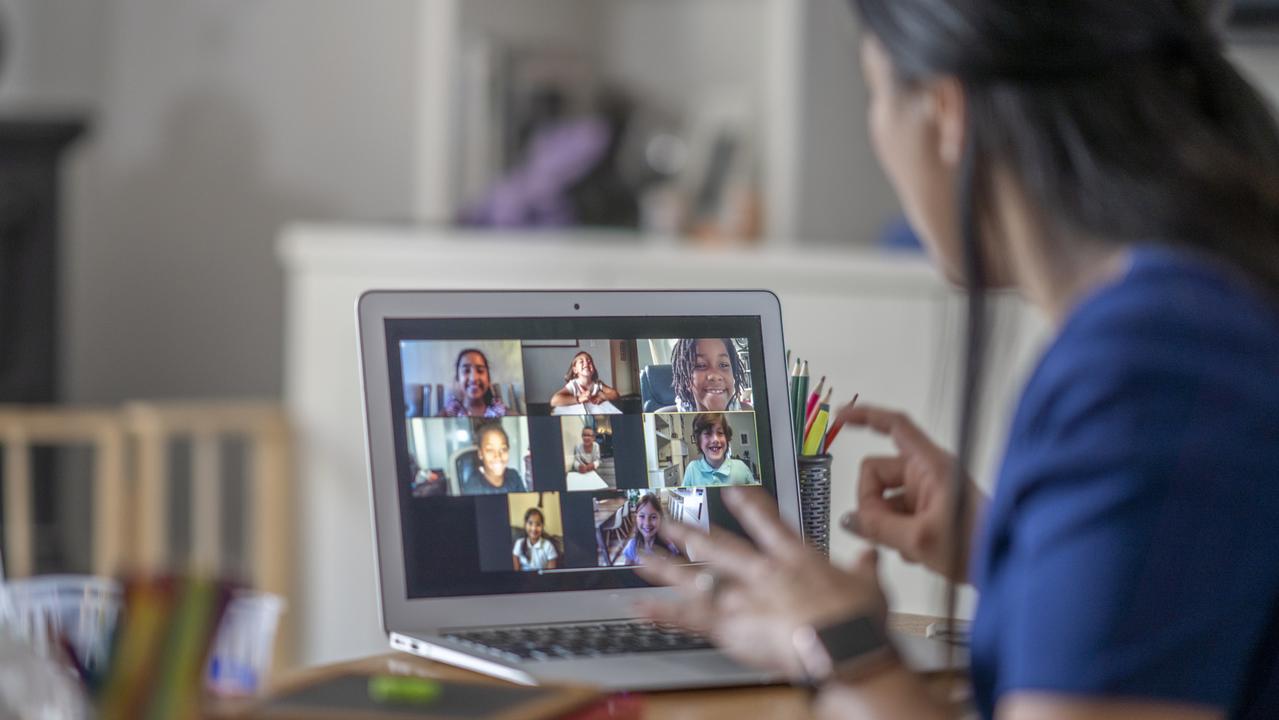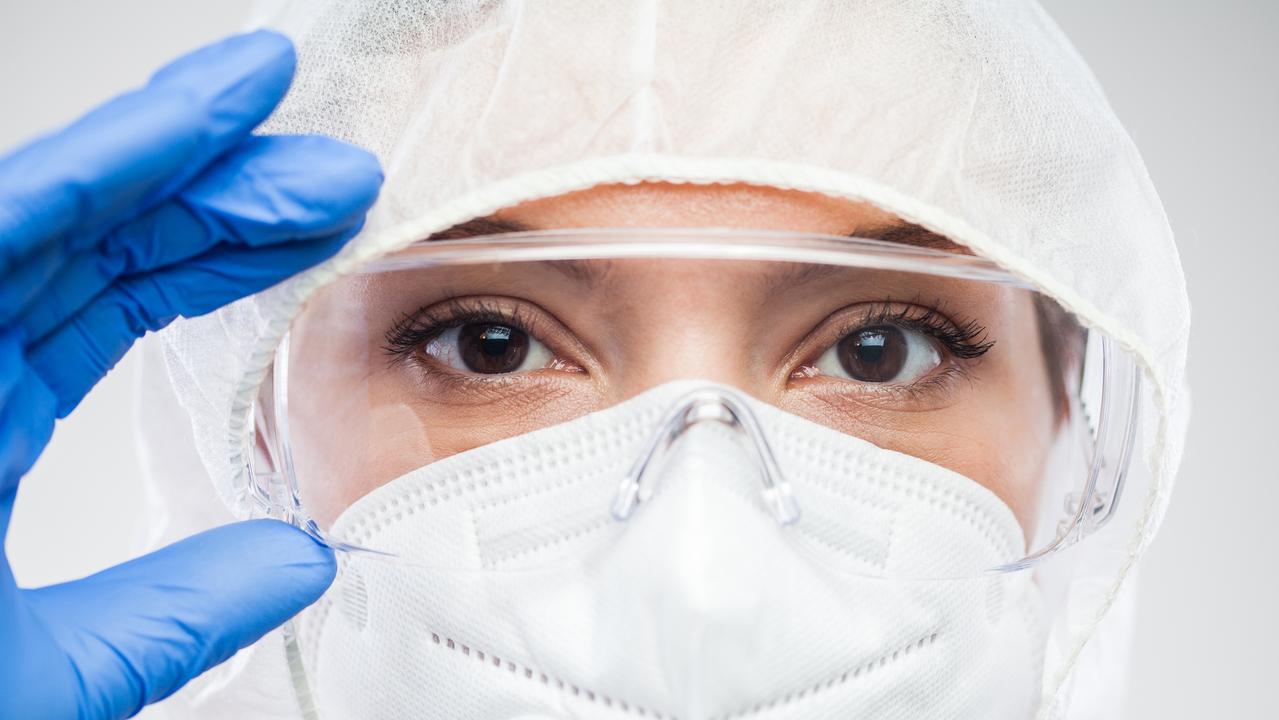760,000 Aussie frontline workers are considering quitting their jobs
All over Australia, hundreds of thousands of workers are fed up, and on the verge of quitting their jobs - which would spell disaster for the country.
ICU nurse Helen Connors* feels a huge amount of “guilt” that people have died alone on her ward as they battle Covid-19 and she hasn’t had the time to sit there and hold their hand.
She works in a busy Sydney hospital but was also sent to a regional area for two weeks as the outbreak spread and the pandemic caused massive shortages.
As Covid cases soared over a thousand in NSW for a number of weeks, Ms Connors said the last month and a half had been the “worst” and “extremely stressful” as the ICU ward dealt with patients who are very sick.
And she’s not alone - new research has found nearly one fifth of essential workers in education, emergency services and healthcare have considered quitting their jobs because of the pandemic.
This represents around 760,000 essential workers across Australia who could be at risk of leaving their front-line profession, and would lead to already stretched professions moving closer to breaking point.

Ms Conners, who is in her late 20s, said the huge amount of people requiring ICU care is putting a massive strain on staff.
Those unfamiliar with ICU are required to upskill immediately or more experienced workers like her have the responsibility to train up workers under a highly pressured environment, she explained.
“There is a lot of tasks and things to learn like the ventilator and different ways of monitoring and that stuff is all learned on the job. In a normal environment you get six months to get to that point, but at the moment you have no time,” she said.
“These people who have nursing skills from wards are having to learn extra stuff as soon as they possibly can as we need them now.
“Not everyone has the same skills or same knowledge as we do in ICU, so its quite stressful having someone that may not know exactly what doing. So you have to do your own work and watch over them and make sure they are doing their job properly. But it’s not their fault and it’s better than not having anyone at all.”

But Ms Connors, who works in an ICU with 50 beds, said the “emotional burden” is the heaviest thing to come out of working during the pandemic’s current outbreak in Sydney.
“We deal with death in ICU normally but there is definitely more death than normal around with this illness and it’s made 10 times harder as a lot of these patients can’t have their family there if they are dying as their families also have Covid,” she said.
She said its “really sad” when someone is at their sickest and they can’t have the comfort of their mum, dad, sibling or partner being by their side.
“It’s really hard to know that they can’t have that person there, especially when they are dying. I feel a lot of emotion for the families and often they are so sick they are unaware at that point but I feel a lot of empathy for families and they are ones that go on knowing their loved one died alone,” she said.
“We try our best to be there and hold their hands. But that’s happened to me – I've been busy with another patient and my other patient is expected to die and has died .... It’s hard to know that people are dying alone essentially.”
She said all her colleagues feel so “stretched” and that they don’t have the time to give the “full package of empathy” such as spending time talking to lonely patients.

Meanwhile wearing full PPE, while essential for their protection, also adds to the patient’s isolation as they can’t even see their nurse’s hair colour or smile, she added..
The Sydneysider said the “added pressure and guilt” of the job is also spilling over into her personal life too where she is more irritable with her partner, but she isn’t ready yet to give up a job she is “passionate” about.
Then there’s Rachel Ahmed*, a teacher from a school in a Western Sydney hot spot area.
She is seeing a concerning trend among children as she delivers classes online at a crucial age where they are learning to read.
“I teach year one and delivering learning that supports those children is really challenging as you have children that have an adult who is supporting them and some that are there by themselves,” she told news.com.au.
“It’s been really challenging and it’s been a case of if you know they don’t have an adult around there is only so much you can do and it’s almost like you have to turn a blind eye that they aren’t learning.
“The gap between my students will be huge when we return to the classroom and it's not due to a lack of ability but due to lack of support, which is really hard.”
She said there are children who haven’t picked up a book in six weeks, which will hinder their ability to access the learning when they return.

But she doesn’t blame parents who are juggling working from home and supervising their children during school time.
The Sydneysider said her job has been “turned on its head” during lockdown – increasing her workload dramatically.
On any one day she’s expected to plan lessons by creating slides and audio, conduct Zoom calls with her class, offer tech support, check in on the wellbeing of students, guide them through the online delivery platform and answer any questions raised.
There’s also expectation to check in with families every week via a phone call.
“It’s been a mammoth task. It's not just a few minutes conversation,” she said.
“I’m speaking to families that have lost everything being in a hotspot – they have lost work and are feeling depressed. I am meant to be speaking about their child and it ends up being a half an hour conversation. I could cut it short but when you’re supporting someone going through a tough emotional time its hard to do.”
The teacher, in her late 20s, said there is minimal downtime for her.
“It’s not as if working from home has allowed me to have extra time to do anything,” she said.
“My time has been eaten up by all the additional tasks I have to do and its really draining to have to go through your own issues and the way you’re feeling, and not only supporting your class but their families as well.”

Another huge concern is the massive misinformation being spread surrounding kids getting vaccinated, with some parents questioning whether they could trust her as they believed she would be immunising their children in “secret”, Ms Ahmed said.
Obviously that would never be allowed, Ms Ahmed added, but this puts her in “uncharted territory” as she is not a “medical professional” and doesn’t want to get drawn into the debate around vaccines.
Working from home has also made it hard to “switch off”, yet she feels guilty about how parents are coping with the impact of lockdown.
“I feel like my life has just been school and that’s been really upsetting,” she said.
“But I know that there are people in really stressful situations in terms of having a lot of children and not having a steady income and I feel guilty about not doing everything in my power to help.”

Most of all she is worried about her children, who fill out a check in questionnaire each morning, and increasingly the responses are “heartbreaking”.
“More and more children are not doing so well and they have missed me and missed coming to school,” she said.
“A lot of the time it’s that social interaction they are missing, where they just don’t get to play especially if they are not from a big family as they are not playing with other kids, which is a really scary thought in terms of social development.”
Being an essential worker, although often less recognised than roles such as healthcare, is taking its toll on Ms Ahmoud.
“I’m bitter as I’m expected to be everything for everyone and it makes me upset,” she said. However, she isn’t ready to give up on the profession she loves.

New research commissioned by Hiver, a member-owned bank for essential workers, also revealed that 58 per cent essential workers had experienced threats to their personal safety at work, while 65 per cent reported greater difficulty looking after their own mental health as the pandemic continued.
In Victoria and New South Wales, almost 80 per cent of essential workers reported that they have found it harder to fulfil their roles on the front line this year.
This was a significantly different experience to essential workers in other states, where only around 38 per cent found their jobs harder to fulfil in 2021.

Carolyn Murphy, chief digital bank officer of Hiver, said the responsibilities of workers were more intense than ever because of the pandemic.
“The people who face-up to the very personal impacts of Covid-19 on a daily basis are telling us they are nearing breaking point,” she said.
More Coverage
“As the pandemic goes on, if we are expecting to continue our reliance on essential workers, we need to look carefully at how we can provide meaningful support in their lives.”
She added the research found that 41 per cent of essential workers aged 18-34 are finding it difficult to get affordable housing close to their work.
“We believe (affordable housing) could assist in reducing stress and improving the mental wellbeing of many of our front line workers,” she added.





